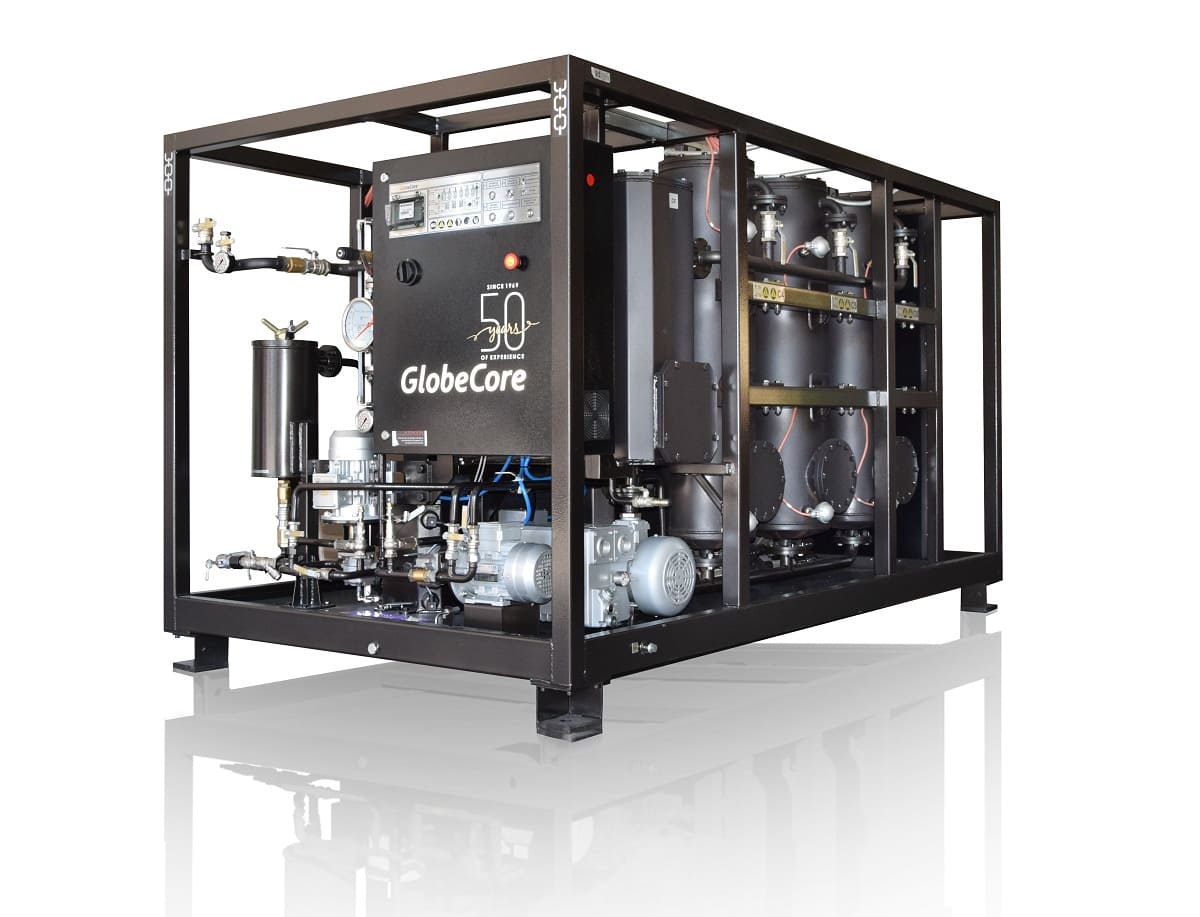Why Transformer Oil Regeneration Is Vital for Performance
Wiki Article
Why Regenerated Transformer Oil Is Essential for Reliable Power Systems
The crucial duty of regenerated transformer oil in making sure the reliability of power systems can not be overstated. By recovering the oil's fundamental chemical and physical residential or commercial properties, the regrowth procedure substantially boosts its dielectric strength and thermal performance.Value of Transformer Oil
Transformer oil plays an important duty in the efficient operation of electrical transformers. This customized oil serves numerous functions, mostly as an insulator and coolant, ensuring the risk-free and reliable performance of transformer systems. Its dielectric buildings prevent electrical discharges, therefore securing the honesty of transformer components. By providing thermal conductivity, transformer oil dissipates heat produced during electrical operation, which is vital for preserving ideal operating temperature levels and lengthening the life-span of the tools.Additionally, transformer oil acts as a barrier versus moisture and air, which can result in oxidation and degradation of transformer materials. The visibility of contaminants in the oil can significantly harm its shielding buildings, leading to operational inadequacies and prospective devices failing. Regular monitoring and upkeep of transformer oil are consequently vital to making sure the continued effectiveness of transformers.
The top quality and structure of transformer oil are critical, as they straight affect the reliability and efficiency of the electric systems in which they operate. Understanding the relevance of transformer oil is crucial for industries and energies reliant on durable power facilities, emphasizing the requirement for reliable monitoring and regrowth processes to keep oil integrity over time.
Benefits of Regeneration Process

In addition, the regeneration procedure reduces the degradation of oil, which can lead to enhanced oxidation and acid formation. This not just improves the reliability of the oil however likewise reduces the danger of transformer failings as a result of insulation failure. The enhanced quality of regenerated oil allows transformers to operate at optimal degrees, inevitably leading to improved power performance and reduced functional prices.
In addition, the regrowth process adds to keeping the overall health and wellness of the power system. Transformers can run longer without the need for oil substitute, thus reducing downtime and maintenance initiatives. In recap, the regrowth process provides significant advantages by improving the durability and performance of transformer oil, ensuring that power systems run accurately and effectively in time.
Environmental Influence and Sustainability
The regrowth process of transformer oil considerably minimizes environmental concerns related to oil disposal and waste monitoring. Standard disposal techniques for used transformer oil pose significant dangers, including dirt contamination and water contamination. By regrowing oil, these risks are significantly decreased, as the process recycles existing resources as opposed to adding to squander build-up.Moreover, regenerated transformer oil can be recycled in numerous applications, which promotes a circular economic climate. This not just decreases the demand for virgin oil removal-- a procedure that can be ecologically damaging-- yet likewise preserves natural deposits. The regeneration procedure itself employs innovative filtering and purification methods that remove unsafe pollutants, ensuring that the last product fulfills or exceeds sector criteria for performance and security.

Enhancing Transformer Efficiency
Significant enhancements in transformer efficiency can be achieved through using regenerated transformer oil. This oil, generated through advanced purification procedures, significantly improves the electric insulation properties of transformers. By eliminating contaminations and impurities that typically compromise efficiency, regrowed oil ensures superior dielectric stamina, lowering the danger of electric failures.In addition, regenerated transformer oil shows enhanced thermal conductivity, which promotes effective heat dissipation. This characteristic is critical for keeping optimum operating temperature levels, thus extending the life expectancy of transformers and lessening the probability of getting too hot - Reclaimed Transformer Oil. Improved thermal management also contributes to the general reliability of power systems
Furthermore, the chemical security of regenerated oil prevents the formation of corrosive acids and sludge, which can detrimentally influence transformer elements. By maintaining a cleaner internal setting, this oil reduces maintenance demands and prolongs service periods.
Cost-Effectiveness and Effectiveness
In terms of cost-effectiveness and performance, regrowed transformer oil offers an engaging option to standard oils. The regeneration procedure not just removes pollutants but additionally brings back the oil's original homes, extending its practical life expectancy. This longevity translates into lowered frequency of oil replacement, thereby lowering functional expenses gradually.
In addition, the use of regenerated oil can significantly diminish power losses related to ineffective shielding liquids. Its premium dielectric residential or commercial properties make sure optimal performance, enhancing the dependability of power systems. Because of this, services benefit from lower upkeep costs and decreased downtime, cultivating a more effective functional atmosphere.

Conclusion
To conclude, the regrowth of transformer oil plays an essential role in guaranteeing the integrity and performance of power systems. By bring back the essential chemical and physical residential properties of the oil, this Reclaimed Transformer Oil procedure boosts dielectric toughness and thermal conductivity, ultimately reducing the risk of insulation break down. Additionally, the environmental benefits connected with recycling resources add to sustainability efforts, while cost-effectiveness and improved efficiency emphasize the need of making use of regenerated transformer oil in modern-day electric infrastructure.Transformer oil plays a critical duty in the effective operation of electrical transformers. Normal surveillance and maintenance of transformer oil are for that reason crucial to making sure the continued effectiveness of transformers.
The regrowth procedure of transformer oil considerably minimizes environmental problems connected with oil disposal and waste management. By lengthening the lifecycle of transformer oil, the power and resources generally eaten in generating brand-new oil are considerably decreased.Substantial enhancements in transformer efficiency can be accomplished through the usage of regenerated transformer oil.
Report this wiki page